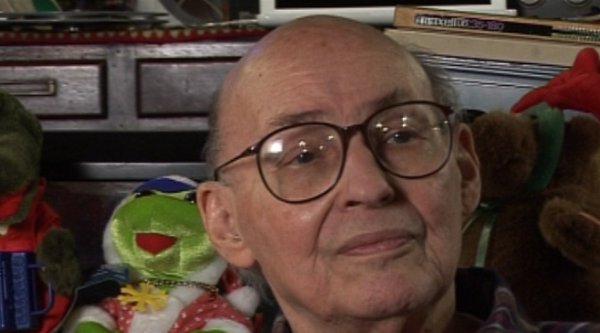NEXT STORY

Tinker Toys versus Lego
RELATED STORIES

NEXT STORY

Tinker Toys versus Lego
RELATED STORIES


|
Views | Duration | |
|---|---|---|---|
| 1. The amazing videophone from the '60s | 12 | 3300 | 01:41 |
| 2. Unreliable childhood memories | 1 | 1858 | 04:04 |
| 3. Fieldston School | 1419 | 01:35 | |
| 4. The next J Robert Oppenheimer? | 2182 | 00:52 | |
| 5. Feeling rather slow | 2 | 1888 | 04:06 |
| 6. Having intelligent friends | 2 | 2036 | 04:44 |
| 7. Memories of post-war childhood: Mother and father | 1289 | 03:03 | |
| 8. The significance of being Jewish as a child | 1643 | 01:01 | |
| 9. The direction of attraction between mathematicians and musicians | 1423 | 01:39 | |
| 10. Tinker Toys versus Lego | 2175 | 04:17 |

I know there were groups of children who were interested in sports and there were children who were interested in literature and… these friends of mine were almost all… well, some of them were interested in music, but that’s a curious thing, that my impression is that most mathematicians are attracted to certain kinds of classical music, complicated things, whereas very few musicians are attracted toward mathematics: it’s a very unsymmetrical thing and… of course, one generous theory is that the musicians don’t need mathematics because they’re already dealing with very complicated abstract structures very well, and maybe in many respects it’s the same… it uses the same parts of brains, but I don’t, I’ve never seen any attempts to study this.
But I seems to me, most of the things I can remember discussing with friends were… were technical things and inventions and ideas about how to make things that did things, rather than… I don’t remember ever discussing social matters very much; maybe we were all a little bit autistic.
Marvin Minsky (1927-2016) was one of the pioneers of the field of Artificial Intelligence, founding the MIT AI lab in 1970. He also made many contributions to the fields of mathematics, cognitive psychology, robotics, optics and computational linguistics. Since the 1950s, he had been attempting to define and explain human cognition, the ideas of which can be found in his two books, The Emotion Machine and The Society of Mind. His many inventions include the first confocal scanning microscope, the first neural network simulator (SNARC) and the first LOGO 'turtle'.
Title: The direction of attraction between mathematicians and musicians
Listeners: Christopher Sykes
Christopher Sykes is a London-based television producer and director who has made a number of documentary films for BBC TV, Channel 4 and PBS.
Tags: music, mathematicians, musicians, childhood interests, childhood friendship
Duration: 1 minute, 40 seconds
Date story recorded: 29-31 Jan 2011
Date story went live: 09 May 2011